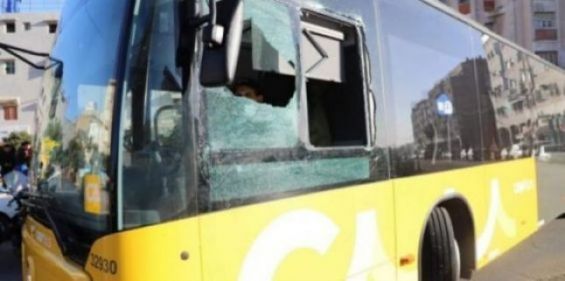On Friday, February 12, the city of Casablanca welcomed its long-awaited bus fleet. The 450 buses, acquired by the Support Fund for Urban and Interurban Transport Reforms, transportation company Alsa, as well as through contributions from the region of Casablanca-Settat and the Municipality of Casablanca, were given the go-ahead to replace an old and in-bad-shape fleet.
The fleet, which will add ten new lines to the city's transportation network, is expected to gradually increase the number of buses operating in the city to 700 by the end of 2021, the Casablanca city council proudly announced earlier this month.
However and only a few days after these buses started roaming the streets of Casablanca, several acts of vandalism have been recorded. On social media, Casablanca inhabitants denounced the reoccurring acts and urged passengers and passersby to preserve the new fleet.
Exclusion and marginalization
The authorities later announced the arrest of two people, aged 16 and 17, for vandalizing the buses. Despite calls on social media and the arrest, these acts did not stop. And in the same way former bus fleets were destroyed and vandalized, the new ones are faced with the same phenomenon.
To sociologists, understanding the reasons behind this aggressive and vengeful behavior requires addressing several considerations.
«To look into this issue, it is important to consider educational, moral, economic and sociological perspectives», sociologist Abdeljabbar Boucetta told Yabiladi. To him, «social exclusion and marginalization» could be behind these acts, especially among teenagers, which are in a very sensitive and dangerous transitional period. Sometimes, poverty and financial vulnerability can «create a feeling of deprivation, resentment and exclusion», he explained.
«This could also reflect the fact that these youngsters do not have strong social ties within their families», he explained.
The same idea was raised by psychosociologist Mohcin Benzakour, who believes that in addition to the economic situation and the financial vulnerability of these young people, education, the media and the authorities have a hand in eliminating this phenomenon.
«It is a shared responsibility that lays with several aspects», including the «living conditions of the families and the vulnerability of the parents», he stressed.
According to Benzakour, «parents must feel safe and secure financially (social funds, health care), to be able to bring up responsible young people with balanced relationships».
Education and inclusion
School comes next, Benzakour said, indicating that «educational institutions must educate and keep students busy». «The number of cultural and sports activities that used to keep students busy and help them fill their free time have, unfortunately, decreased. As a result, these young people find themselves sitting at school, forced to stay still without moving and exploring the energy that they have at this age», he regretted.
The other part of the responsibility lays with the media, he signaled. «Teenagers have no special TV channel or at least show, they are left to boredom and void and that is a big trigger for violence and recklessness», he argued.
But there is always room for improvement and solutions. To sociologist Fouad Belmir, awareness campaigns and inclusion could work. «Awareness must be raised among these youngsters on two levels», he said.
«In addition to long-term ones with values of citizenship, the authorities and the company managing the bus fleet must think of short-term solutions», he explained.
In Casablanca, for example, the local authorities «should introduce to the inhabitants the new fleet before its launch and explain to young people in particular that Morocco and Moroccans contributed to its construction».
They have to feel involved, he stressed. «It is very important to make these teenagers feel that the country needs them and make them visit and explore bus assembly units and why not contribute to the launch», he concluded.




 chargement...
chargement...












